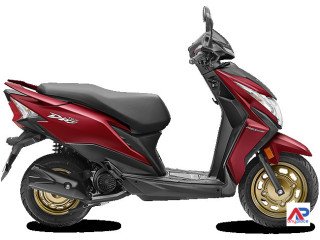The Difference Between Woven and Non Woven Bags
2021-12-16 13:15 Automobiles Baranagar 298 views Reference: 239Location: Baranagar
Price: Contact us
Woven Bags
Woven bag can be made in a variety of weaving styles. However, three common weave styles are used. These are twill, satin weave, and plain weave. Each weaving style is unique and the style to be used will be dependent on the kind of bag being made.
Woven bags are a classic and have been around for quite some time. However, it is interesting to see the emerging trends in Singapore and the rest of the world. One major trend is the bucket bag that can be used for grocery shopping as well as a handbag. Woven bags can also be used as tote bags, clutch bags, and even satchel bags.
Pros
-
They are flexible and able to maintain their shape
-
They are reusable
-
They are suitable for machine washing
Cons
HOW TO CHOOSE THE RIGHT BULK BAG FOR YOUR BUSINESS?
Jumbo bags (also known as big bags, super sacks, bulk bags, FIBC) are large bags made from woven polypropylene (PP) fabric used to store and transport materials with loading weight from 500kg - 2500kg.
FIBC bags are now more and more widely used in many large manufacturers in different fields such as industry, agriculture, pharmaceuticals, chemicals, ....
Despite of that, not many people understand the criteria to choose reasonable price jumbo bags which fully meet the requirements.
Cost of Plastic Versus Mesh Bags
Reviewing prices of online produce bag sales, a private consumer would pay about $.04 per bag if purchasing a quantity of about 2,000 thin-film plastic bags. However, supermarkets purchase in such volume that their cost is far less. According to an economic impact statement produced for Los Angeles County in 2010 and related to the county's 2012 ban on retailer use of plastic bags in unincorporated parts of the county, LA retailers spend about .01 per bag for the sturdier carry-out bags used at checkstands.
In contrast to plastic produce bags, mesh bag that can be laundered and reused countless times cost significantly more per bag. Reviewing online prices shows costs of about $.75 to $5.00 per bag depending on the brand and type.
The cost of change
Several major supermarkets, including multinationals Tesco and Walmart, have already promised to reduce the amount of plastic packaging they sell their products in. Alongside Coca-Cola, drinks manufacturers Pepsi, food and cleaning multinational Unilever, food producer Nestle and cosmetics company L’Oreal have also pledged to ensure all their packaging is either reusable, recyclable or compostable by 2025.
But despite these commitments, much of the food and drinks industry is still trying to work out how it will meet the targets it has helped to set for itself. Some experts fear that without the right approach, this rush to banish plastics from our shopping baskets will make the goods we buy more expensive.














